<< Learning Center
Media Accessibility Information, Guidelines and Research
Deafness and Black History: One Leader's Perspective
By Ernest E. Garrett III
The Diversity of a Community
The African-American community embodies a rich system of educational, political, and cultural supports that seek to ensure the visibility—and validity—of its community members within mainstream society at large.
Paramount to this system is the presence of socio-political organizations that advocate for the needs of African Americans at local, state, and national levels of participation. Given that African Americans are the largest racial minority group in the USA, it would be unthinking to believe that such organizations can serve the needs of every African American. The community itself is diverse, representing myriad variables of national origin, skin color, religion, gender, sexual orientation, age, and—most importantly for the sake of this article—disability. While the National Association for the Advancement of Colored People and similar-minded political advocacy groups are progressive in their own right, Deaf African Americans envisioned the need for a national organization focused on the needs of Blacks living with the experience of a hearing loss disability; hence, the birth of National Black Deaf Advocates (NBDA) in 1982.
About the NBDA
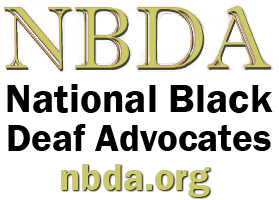
Though a relatively new establishment, NBDA is the oldest and largest consumer organization of Black Deaf people in the United States. It is a nonprofit, tax-exempt, consumer organization, supported by its members, partners, and allies who are interested in furthering NBDA's goals. The organization's mission is "to promote the leadership development, economic, and educational opportunities; social equality; and to safeguard the general health and welfare of Black Deaf and hard of hearing people."
The executive officers, in consultation with the board of directors, manage and supervise the affairs of NBDA in keeping with its mission, bylaws, and guidelines. Under the leadership of NBDA Past President Ernest Garrett, the NBDA Strategic Plan 2011-2016 was voted and passed at the board of directors meeting on February 5, 2011 in Charlotte, NC. The focus of organizational efforts, as directed by the strategic plan, will be as follows:
- Goal #1 NBDA Strategic Fiscal Management: To develop and implement a system of organizational fiscal management that is transparent; adheres to proper fiscal accounting and management; and results in positive, productive, and professional strategic revenue generation.
- Goal #2 NBDA Strategic Operations Management: To develop and implement a system of organizational operations that is transparent; supportive of Chapter needs; and results in positive, productive, and professional strategic alliances between NBDA and local Chapters.
- Goal #3 NBDA Strategic Public Relations Management: To develop and implement a system of organizational public relations management that is transparent; supportive of Chapter needs; and results in a positive, productive, and professional public relations coup.
- Goal #4 NBDA Strategic Programs Management: To develop and implement a system of organizational programs management that is transparent, supportive of Chapter needs, and results in positive, productive, and professional programs that are efficiently and effectively administered.
- Goal #5 NBDA Strategic National Agenda Management: To develop and implement a system of national agenda management that is transparent; supportive of Chapter needs; and results in a positive, productive, and professional means of achieving NBDA's mission and vision.
This strategic plan will be instrumental in guiding NBDA to achieve its mission, as well as propelling the organization towards its vision: "In five years, National Black Deaf Advocates, Inc. will serve as a model for transformational advocacy by using the pillars of empowerment, leadership, and history to advocate with and on behalf of the Black Deaf and hard of hearing community."
For more information about NBDA, please visit our website: www.nbda.org.
NBDA & The Community
Despite the gains of legislative victories such as the ADA, IDEA, and other relevant social policies, Black Deaf Americans continue to experience gross deficits in access to education, economic parity, and social justice; second-class citizenship in terms of employment opportunities, fair housing, and sustainable relationships with banking institutions; and pervasive threats to the right to define ourselves—by ourselves and for ourselves—in a way that is empowering and culturally affirmative. NBDA continues to be a needed and cherished resource to assist its members, corporate partners, and allies with advocating for, with, and on behalf of Black Deaf and hard of hearing people.
In what ways does NBDA provide advocacy for equal access with regard to economic and educational opportunities, social equality, and health? NBDA chapters provide educational workshops and trainings, engage in fundraising activities to support chapter programs, and participate in regional and national conferences to network with other chapters of NBDA and conduct regional business. At the national level, officers and board members actively remain abreast of issues pertaining to chapters and are prepared to respond to situations when the opportunity presents itself. This can take the following forms: writing letters of support, joining with other national organizations to form a coalition of the willing, and developing partnerships with other organizations around advocacy issues.
Leaders of and in the Black Deaf Community
As with the African-American community at large, Deaf African Americans have prominent members of their own community who have made significant contributions to society. Such members represent the fields of administration and supervision, social work, vocational rehabilitation, education, and other important institutions within American society.
-

Title
DR. GLENN B. ANDERSON, Ph.D. and C.R.C., is an assistant professor within the interpretation ASL/English department at the University of Arkansas at Little Rock. He also holds the distinction of being the first Black Deaf man to earn a doctorate degree. Dr. Anderson's accomplishments are too numerous to mention, but they include serving as the chairman of the board of trustees at Gallaudet University, an appointment as second vice-chair to the National Council on Disability, and member of the board of directors of NBDA.
-
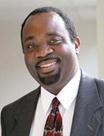
DR. ISAAC AGBOOLA, Ph.D., is the dean within the College of Liberal Arts, Sciences, and Technologies at Gallaudet University.
-
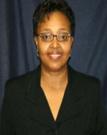
DR. ELIZABETH MOORE, Ph.D., M.S.W., is an assistant professor of social work and M.S.W. program director at Gallaudet University.
-
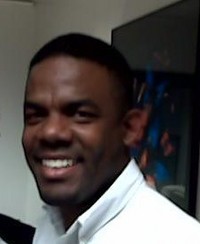
MARVIN "TIM" ALBERT, M.S.W., is the former school social worker and current assistant director for residential services at the Georgia School for the Deaf. He is also a member of the administration team for the Deaf Youth Camp of Color, a program of the National Deaf People of Color Conference.
-
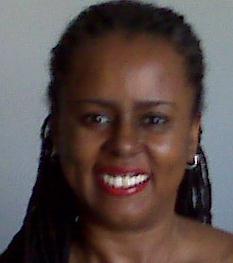
PATRICE JOYNER-CREAMER, M.A., M.S.W., is the project director for the National Development & Research Institute, Inc.
-

DR. CLAUDIA L. GORDON, Esq., the first Black Deaf woman to obtain a Juris Doctorate, is a political appointee with the Obama administration. She was appointed as special assistant to the director of the U.S. Department of Labor's Office of Federal Contract Compliance Programs (OFCCP). She is also a former officer (vice president) of NBDA.
-

PAMELA LLOYD-OGOKE, M.S., is the bureau chief for the North Carolina division of Vocational Rehabilitation's community services section, a member of the Gallaudet University board of trustees, and a past president (two terms) of NBDA.
-
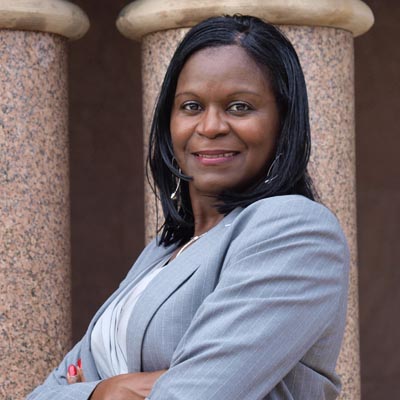
DR. ANGELA MCCASKILL, Ph.D., is the Deputy to the President and Associate Provost for Diversity and Inclusion at Gallaudet University. By virtue of her position, she heads the Office of Diversity and Inclusion at Gallaudet University. She holds the distinction of being the highest ranking person of color in the administration of Gallaudet University President Dr. T. Alan Hurwitz. She is also the first African American female to receive her doctorate degree from Gallaudet University.
-
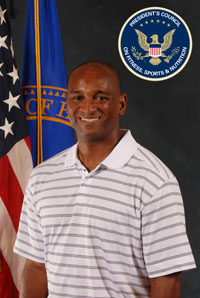
COACH CURTIS PRIDE, B.S., is the Head Baseball Coach at Gallaudet University. He holds the honor of being the only Deaf major league baseball player of the modern era, having played for the New York Yankees, Boston Red Sox, Los Angeles Angels, Atlanta Braves, Montreal Expos, and Detroit Tigers. He was appointed to the President's Council on Fitness, Sports, and Nutrition and sworn in by Department of Health and Human Services Secretary Kathleen Sebelius.
-
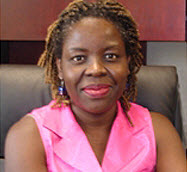
DR. KHADIJAT "KUBBY" RASHID, Ph.D., was appointed as White House Fellow, Class of 2010-2011, and is the first deaf person to be named a White House Fellow. She is also the Chair of the Gallaudet University Department of Business Administration and a member of the faculty since 1994. She is an expert in international economic development and actively involved in faculty leadership and administration.
-
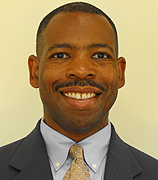
DUANE HALLIBURTON, M.S., a former treasurer and board member of NBDA, is the co-founder of Thompson and Halliburton, LLC, a commercial and residential property management firm. He also serves on the board of directors of Deafinite Possibilities Foundation, an organization which provides charitable outreach programs to underserved deaf and hard of hearing people in the United States and around the world. He is the second former NBDA officer to be appointed to the Gallaudet University Board of Trustees (the first is Pamela Lloyd-Ogoke).
There are many other movers and shakers within the Black Deaf community and not enough space within this article to credit them for their contributions to not only to the Deaf Community, but also to American society. It is the hope of the NBDA that, through our youth, its Youth Empowerment Summit, self-esteem building Miss Black Deaf America Pageant, and Collegiate Black Deaf Student Leadership Institute programs, we will continue to develop and prepare the next generation of Black Deaf leadership.
NBDA & DCMP
Last, but not least, NBDA is greatly indebted to the U.S. Department of Education, particularly its Described and Captioned Media Program (DCMP), which provides valuable resources to enhance the educational success of our K–12 Black Deaf students and those who also experience varying degrees of vision loss. Their service also extends to interpreters and other professions serving those K-12 students. NBDA cannot do it alone; with programs such as the DCMP, we are confident that one day Black Deaf people can—and will—enjoy greater educational, economic, and social parity within mainstream society.
NBDA Board of Directors
Benro T. Ogunyipe, NBDA President
Cory Parker, NBDA Vice President
Sharon D. White, NBDA Secretary
Betty Henderson, NBDA Treasurer
Fred M. Beam, Eastern Regional Representative
Marilyn Edwards, Southern Regional Representative
Dale Moore, Midwestern Regional Representative
Cathy Ware, Southwestern Regional Representative
About the Author
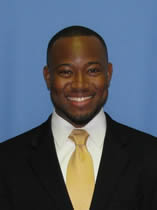 Ernest E. Garrett III is Superintendent of the Louisiana Special School District and a former president of National Black Deaf Advocates, Inc. He is a Licensed Clinical Social Worker, Certified Advanced Social Work Case Manager, Certified School Social Work Specialist, and member of the Academy of Certified Social Workers. In addition to employment as the Executive Director of the Missouri Commission for the Deaf and Hard of Hearing, Ernest is the owner of Garrett LCSW & Consulting, a limited liability company headquartered in Jefferson City, MO. Garrett LCSW and Consulting, L.L.C. specializes in the provision of culturally sensitive and competent clinical social work services in a culturally affirmative and linguistically accessible environment on behalf of Missouri's deaf and hard of hearing populations.
Ernest E. Garrett III is Superintendent of the Louisiana Special School District and a former president of National Black Deaf Advocates, Inc. He is a Licensed Clinical Social Worker, Certified Advanced Social Work Case Manager, Certified School Social Work Specialist, and member of the Academy of Certified Social Workers. In addition to employment as the Executive Director of the Missouri Commission for the Deaf and Hard of Hearing, Ernest is the owner of Garrett LCSW & Consulting, a limited liability company headquartered in Jefferson City, MO. Garrett LCSW and Consulting, L.L.C. specializes in the provision of culturally sensitive and competent clinical social work services in a culturally affirmative and linguistically accessible environment on behalf of Missouri's deaf and hard of hearing populations.
Ernest is a graduate of the University of Arkansas at Little Rock, with an associate's degree and dual bachelor's degrees. In addition, he is an alumnus of Gallaudet University, where he obtained master's degrees in both administration and social work. In 2019, Ernest was appointed Superintendent of the Louisiana Special School District.
Tags:
Please take a moment to rate this Learning Center resource by answering three short questions.
